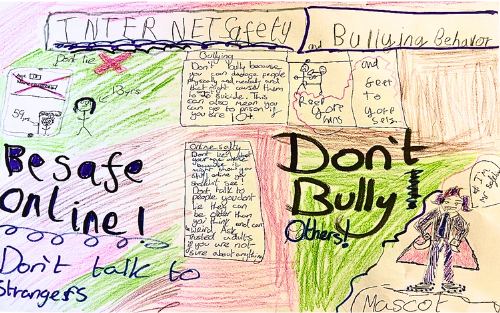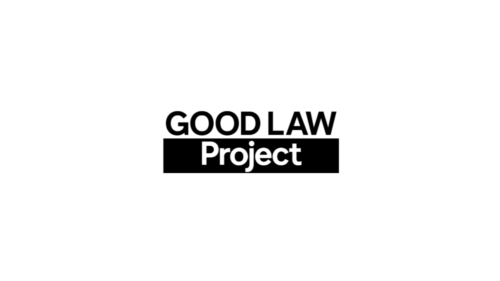Call us now 01926 402 498
News
How Netflix’s Adolescence exposes the rise of incel ideology
Adolescence has ignited a nationwide debate in the UK about toxic influences, online radicalisation, and violence against women. The hard-hitting drama, co-created by Stephen Graham and Jack Thorne, follows the radicalisation of 13-year-old Jamie Miller, a working-class boy from Yorkshire who becomes entangled in the online manosphere before murdering his female classmate.
With 24.3 million views in just four days, Adolescence has shattered streaming records and dominated headlines, resonating with parents, educators, and policymakers alike. The timing of its release was eerily relevant, coinciding with new details about crossbow killer Kyle Clifford, who raped and murdered his ex-girlfriend, her sister, and her mother mere hours after searching for Andrew Tate’s podcast. This real-life case, alongside the fictional horrors of Adolescence, has reignited urgent conversations about how young boys are being radicalised and what we can do to stop it.
A Wake-Up Call for the UK
This isn’t just a TV show—it’s a social reckoning. Adolescence has sparked calls for real political action:
- Labour MP Anneliese Midgley wants it screened in Parliament and schools to educate young people on the dangers of online misogyny.
- Prime Minister Keir Starmer praised the series, calling male violence against women a growing problem we must tackle.
- Former England manager Gareth Southgate delivered a powerful televised speech warning about “callous, manipulative and toxic influencers” preying on young boys.
- Safeguarding Minister Jess Phillips called it “a disturbing glimpse into the minds of thousands of young boys warped by the violence and abuse they are witnessing every day online.”
Even beyond the UK, the show has become a global phenomenon, topping Netflix charts in 71 countries, from Chile to Vietnam. Police forces are urging parents to watch it, and social media is flooded with praise from celebrities and critics alike.
But beyond the shock and headlines, Adolescence exposes a deeper crisis—one we see firsthand at Safeline.
What We’re Seeing at Safeline
The dark journey of Adolescence’s Jamie Miller is not fiction – it reflects the very real patterns we observe in our Prevention and Early Intervention Team at Safeline.
“Our work spans from primary education to higher learning, where we have witnessed a troubling rise in young individuals acknowledging their addiction to pornography, an increase in harmful sexual behaviours accompanied by misogynistic attitudes, and sexual abuse affecting young children from primary schools to adulthood both in person and online. The proliferation of social media has made harmful content more accessible, with influencers subtly promoting misogyny and violence against women and girls, alongside the emergence of incel groups.”
Emma Dolman, Head of Prevention and Early Intervention.
The reality is clear. More boys are self-identifying as “incels” – a term meaning “involuntarily celibate,” often associated with extreme misogyny. Social media is radicalising young men faster than ever, exposing them to influencers who promote violence and hatred towards women. Pornography addiction is skyrocketing, warping perceptions of sex, consent, and relationships from an early age. Schools are seeing an increase in sexual harassment, misogynistic bullying, and abusive behaviours among boys as young as 10.
This is not an isolated issue—it is a generational crisis.
The 80/20 Myth & The Digital Pipeline to Radicalisation
A core theme in Adolescence is the 80/20 rule, a debunked incel theory that claims 80% of women only date the top 20% of men – fueling resentment and entitlement in young boys. Jamie is repeatedly mocked for being “an incel,” pushing him further into online spaces that offer him a sense of belonging at a devastating cost.
The manosphere doesn’t radicalise boys overnight. It starts subtly:
- A gaming streamer jokes about “high-value men” vs. “low-value men.”
- A fitness influencer blames women for “choosing the wrong men.”
- A podcast host insists feminism has “ruined” dating.
These ideas escalate until boys believe that women are the enemy, that violence is justified, and that the world owes them something.
This is why education and early intervention are vital.
What We Can Do

Poster created by a young person attending our Prevention & Early Intervention support
At Safeline, we’re working to break this cycle before it starts. Our Prevention & Early Intervention Team provides:
- Education & Awareness: Teaching young people about healthy relationships, consent, and online safety.
- Early Intervention: Supporting those exposed to or engaging in harmful sexual behaviours.
- Parental Guidance: Helping parents understand online abuse.
- Teacher Training: Equipping schools to tackle the rise of harmful sexual behaviours in classrooms.
- Safe Conversations: Creating spaces where boys can discuss difficulties without falling into toxic narratives.
What Parents Can Do
- Start the conversation. Ask open-ended questions: “Have you heard of this show? What do you think?”
- Listen more than you talk. Avoid lectures—create a safe space for honest discussion.
- Set online boundaries. Don’t just monitor—educate. Teach digital literacy and critical thinking.
- Provide healthy role models. Show boys that strength means respect, empathy, and accountability.
The Bigger Picture: What Needs to Change?
In the wake of Adolescence, there are growing calls for structural reforms: Jack Thorne has suggested banning smartphones for under-16s to curb online radicalisation. Experts are demanding tech giants take accountability for algorithm-driven extremism. Schools need to address toxic behaviours early before harmful beliefs take root. Southgate’s speech highlighted the desperate need for positive influences for young boys.
Most chillingly, a recent survey found that more than half of young women are now afraid of their male peers.
We have to ask ourselves: Is this the world we want for the next generation?
As Safeline, we know that awareness alone isn’t enough. We must take action—as parents, educators, policymakers, and as a society—to protect young people from the radicalisation that leads to real-world violence.
Learn more about Incel Culture
Stay up to date with Safeline’s work by following us on Facebook, Instagram, and Twitter!




